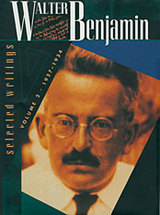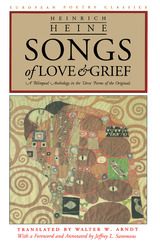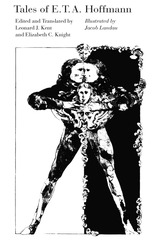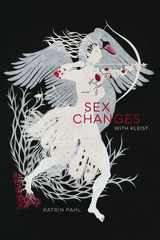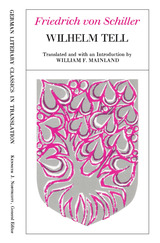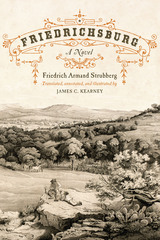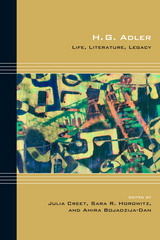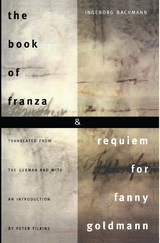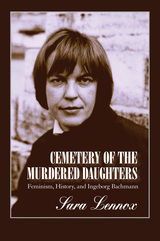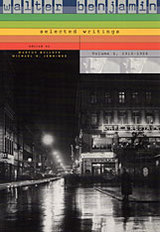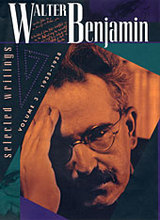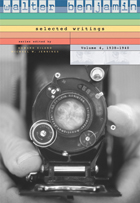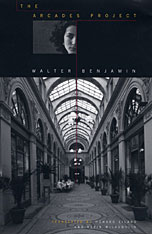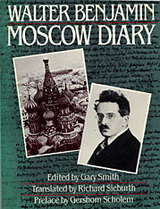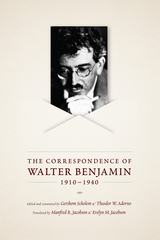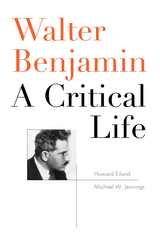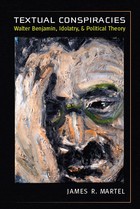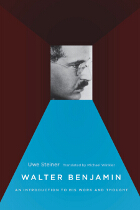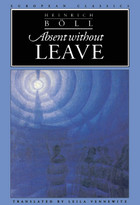For those who know only the small selection of essays and longer texts previously translated into English, this book may be a revelation. Selected Writings: Volume 2, spanning the period from his abandonment of academia and his emergence as an important literary journalist in 1927 to his near silencing after the Nazis seized power and his exile in 1934, shows the writer at his sparkling best...All his published work of this time is included here, from a few longer essays on themes as varied as the history of photography and Kafka to three-page pieces on recent French fiction, art history, 'the crisis of the novel,' food and the effects of hashish. The new book also includes a generous selection of Benjamin's notes, diary entries and drafts. Interesting in themselves, and indispensable to anyone seeking insight into Benjamin's thinking, they also offer a view of the writer at work, developing different aspects of a thought or recycling successful paragraphs from one assignment to another.
-- Paul Mattick New York Times Book Review
Volume 2 of the Harvard edition, a welcome project that I cannot praise enough, is filled with astonishingly 'annihilating trivia,' as astonishing, I dare say, as Benjamin's half-dozen fully realized monographs. Thanks to it, his luminosity, on the eve of the 60th anniversary of his premature death, is happily in focus.
-- Ilan Stavans Forward
The period from 1927 to 1934 spanned in this volume was for Walter Benjamin both grievous and fertile...The range of topics and perspectives is immense. It extends from considerations on kitsch and pornography to repeated encounters, personal or indirect, with Gide, Kierkegaard and surrealism. The cultural history of toys fascinates Benjamin as he records his own Berlin childhood. Insights into 'Left-Wing Melancholy' alternate with thoughts on Mickey Mouse, on Chaplin, and on graphology, which Benjamin practised to eke out his earnings.
-- George Steiner The Observer
No matter how seemingly idiosyncratic the topic, Benjamin drills deep until, almost invariably, he excavates prose that sparkles with a high specific density: hard aphoristically gem-like, and often brilliant...Benjamin's Selected Writings, Volume 2, should, I think, bowl over and beguile any who, caring about the life of the mind, have not yet succumbed to the bearish charms of this gloomy observer of his besotted times. Wherever he turned his incisive gaze the clarity of morning's first light shines forth.
-- Haim Chertok Jerusalem Post
While the Harvard series [of Walter Benjamin's writings includes] Benjamin's epochal contributions to Marxist theory and literary criticism, they also do English-language readers a great service by emphasizing his more accessible writings: fanciful personal essays, journalistic articles and book reviews. These pieces are, at times, giddily delightful; at other moments, they offer lightening-quick, piercing insights. Particularly surprising are the writings on food, such as an account of buying a bunch of figs from an open-air market and consuming them all in a frenzy. Benjamin concludes that one only understands the essence of a given food when one continues to eat it past the point of disgust.
-- Publishers Weekly
This second volume of [Walter Benjamin's] selected writings covers all aspects of the time, with the great figures of European thought in the background. Surrealism, Russian films, Chaplin, Keller, Kafka, Gide, Proust, hashish, children's toys and literature, Hoffmansthal, travel, Goethe, Berlin life, radio talks, Stefan George--it is all here and all living...This volume cannot be praised too highly.
-- Gene Shaw Library Journal
Benjamin's writings deserve a spot in every library. This volume especially speaks of extraordinary resilience, given the diminishing prospects of an author forced to sell parts of his library to survive.
-- Andrew C. Wisely LUCE
Whatever your expectations, here is a book that will meet them, surpass them, frustrate them, and probably transform their very nature altogether
This is a book to be mined, which offers the English-reading scholar a rich resource of mineral wealth. It contains previously translated precious gems such as the "Surrealism" essay which illuminates Benjamin's own "poetic politics"
There are also wide, rich seams of sound and solid philosophical and critical coal that will keep the post-Kantian boilers stoked for the foreseeable future.
-- Ewan Porter Philosophy in Review
